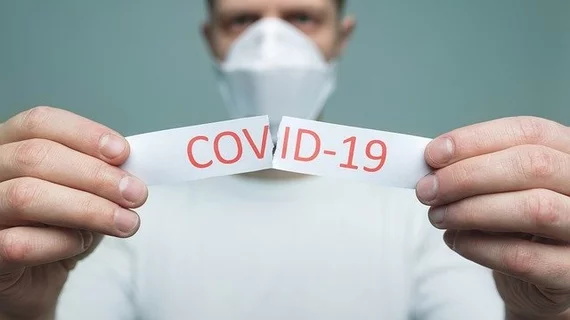Treating COVID-19 patients with low-dose radiation can help limit disease severity and relieve hospitals’ overwhelmed therapeutic departments, nuclear medicine experts argued recently.
A small group of Danish and Swiss researchers made that assertion in a letter to the editor published July 3 in the Journal of Nuclear Medicine. They said low-dose radiation could shorten the course of the disease and cut the number of patients requiring intensive care by one-third, an obvious boon for overpacked care centers.
Poul Flemming Høilund-Carlsen, MD, DMSc, a nuclear medicine professor with Odense University Hospital in Denmark, and colleagues noted a “hundred years” of observational research has shown effective doses of up to 200 or 250 millisieverts are harmless and beneficial in many cases. Current rules on radiation protection have not followed this evidence, however.
“Time has come to make up for this mistake and exploit LDR to fight COVID-19—as a simple and standalone therapeutic procedure or as an adjunct to other forms of therapy being tested,” the authors added.
For example, one treatment of low-dose x-rays has shown to quickly relieve breathing problems and significantly reduce the risk of mortality in patients with interstitial and atypical—including viral—pneumonia. Høilund-Carlsen et al. said they “expect” LDR irradiation to “prevent or significantly relieve” severe pneumonia, a well-document consequence of COVID-19.
Such an approach would be most beneficial early on, but can help during all stages of the disease, the authors noted, with a conservative estimate suggesting a 20% reduction in patients’ required stay in the intensive care unit.
The group pointed out that a randomized-controlled trial investigating LDR in COVID-19 patients would be relatively easy to launch, requiring ethical approval and access to capable equipment like planar x-ray or computed tomography. And countries with fewer resources and less access to healthcare may be particularly interested, they added.
“We are very willing to collaborate with researchers who are interested in adding LDR as an adjunct to ongoing or coming randomized-controlled trials on COVID-19 therapeutic options,” they concluded.

